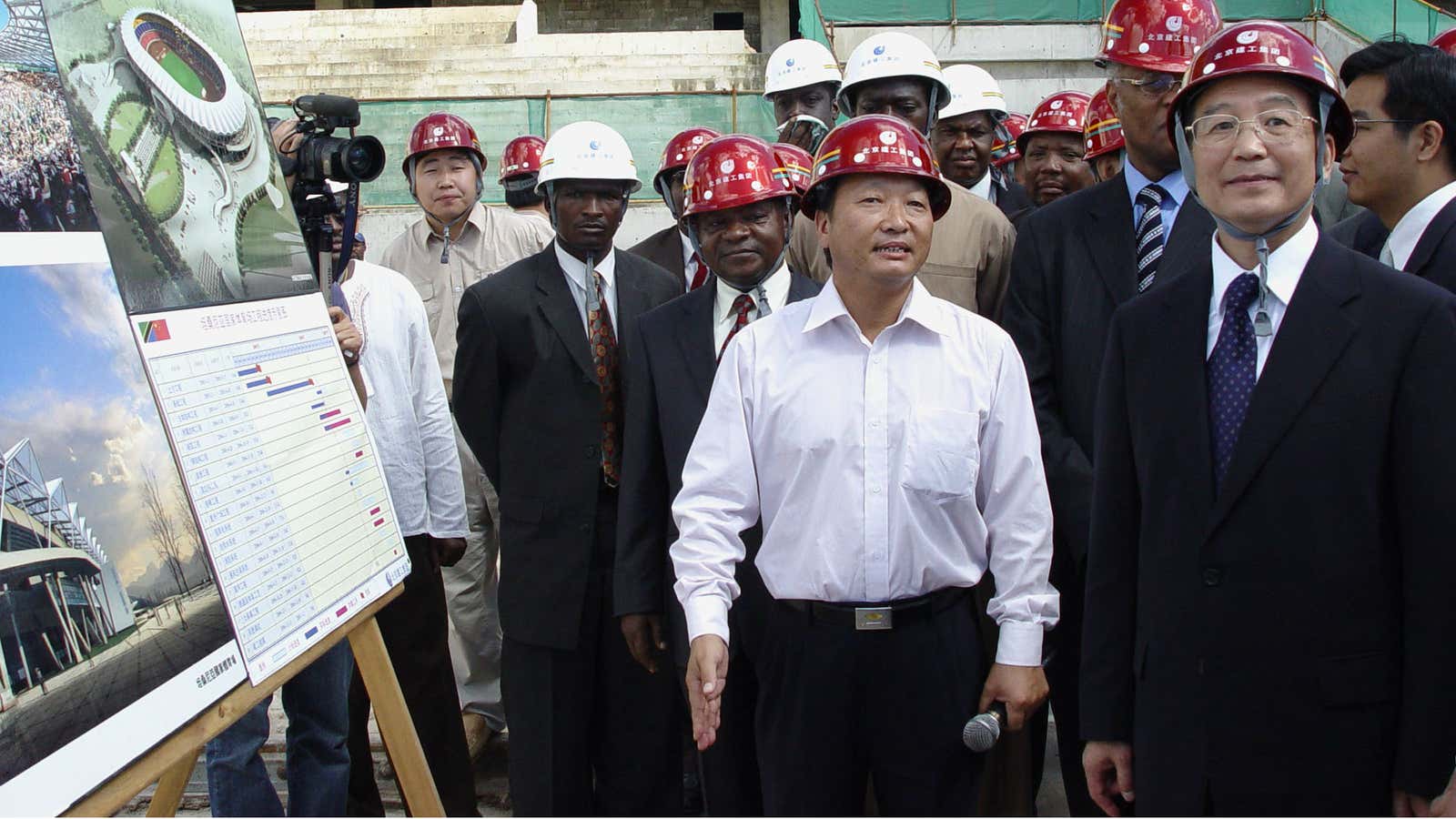Like the rest of the rest of the world, Africa remains uncertain about what’s to come after high-stakes elections in the United States of America and United Kingdom resulted in wins for Donald Trump and Brexit.
But amid the uncertainty, China is poised to take advantage and strengthen its influence on the continent. That much was clear last year as Foreign Direct Investment (FDI) from China to Africa grew sharply with a 106% rise in projects, according to Ernst & Young’s Attractiveness Program Africa 2017. In comparison, FDI projects by the US and UK fell 5.2 and 46.8% respectively.
While still behind UK and the US in terms of number of FDI projects on the continent, the value of China’s was vastly superior. In fact, China’s FDI investments in 2016, was worth more than the other foreign national investors analyzed in the report.
China’s 2016 FDI input in Africa ranked highest across three main metrics measured—projects, capital investment and jobs—since the annual report was first published, EY says. With Donald Trump’s presidency and United Kingdom’s impending exit from the European Union meaning an increasingly isolationist and inward looking stance from both nations, China’s prominence on the continent will only likely increase.
In general, last year was topsy turvy for FDI in Africa. While the number of projects and the jobs created fell compared to the previous year, average FDI investment grew 31.9% to $139 million from $92.5 million in 2015.
South Africa remained the largest hub of FDI projects in Africa despite its economic and currency struggles mainly due to political uncertainty. It retained “its appeal as a launchpad for growth across the continent,” the report says. South Africa was also the largest intra-regional investor on the continent with a spend of $1.6 billion. Including South Africa, Nigeria, Morocco, Kenya and Egypt, some of Africa’s larger economies, accounted for 58% of the continent’s total FDI projects in 2016.
